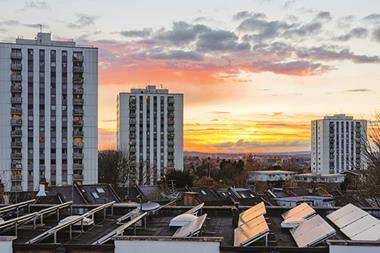By Faraz Baber, director, Terence O’Rourke and chair, RICS planning policy panel

The delay being caused by Chelsea FC’s right-of-light battle with its neighbouring property owner highlights just some of the reasons development projects take so long to come to fruition after planning consent is given.
Developing, in urban areas in particular, throws up a long list of potential hurdles and hoops that developers need to jump over and through before they can actually put a spade in the ground.
Achieving planning permission in the first place can be hugely challenging for big development projects in city centre locations, with developers needing to tick several boxes, from the aesthetics to statutory demands.
To get through all of this and still face delays and uncertainty adds further expense at the planning stage. It hinders the speed at which projects can be delivered and dampens developer appetite for taking on complex projects.
It is one thing when this concerns a Premier League stadium, but more often than not, much-needed housing projects are being affected. London alone needs to deliver 66,000 homes a year over the next 10 years: 40,000 on major sites and around 25,000 on smaller sites of up to 25 homes. Uncertainties, risks of challenge and accessing funding after planning consent will simply not convert permissions to homes expediently.

As an industry, we want to see the ability to develop land made as easy as possible once the council is satisfied with the proposed plans. This is not to say it should happen at the expense of the public, but there must be a sensible solution that protects a neighbour’s right to object while ensuring work can start as early as possible and homes, community facilities or commercial buildings can be delivered as quickly as possible.
Hopefully Sir Oliver Letwin will include these sorts of examples as part of his review into the reasons developments stall and don’t get delivered quickly, even once planning consent is granted. These types of challenges need to be resolved before schemes in urban city areas can get off the ground and new regulations may be needed to restrict how long parties have to mount objections and push for injunctions.





























No comments yet